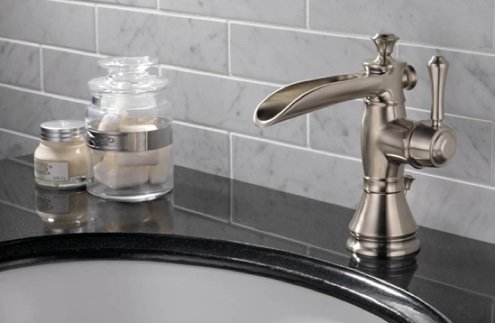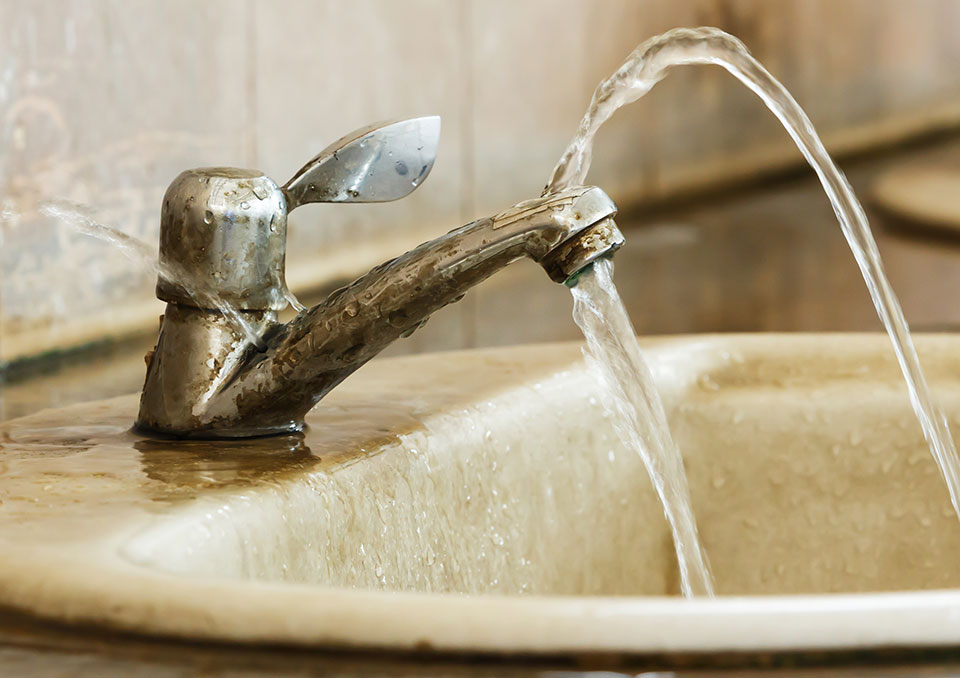The content below pertaining to Should I Repair or Replace a Leaky Faucet? is absolutely motivating. Don't skip it.

Leaking faucets may seem like a minor trouble, however their effect exceeds just the annoyance of the audio. From drainage to incurring unneeded financial expenses and wellness threats, neglecting a trickling faucet can bring about numerous consequences. In this short article, we'll delve into why it's crucial to resolve this common family problem immediately and successfully.
Wastage of Water
Environmental Influence
Trickling faucets contribute considerably to water waste. According to the Environmental Protection Agency (EPA), a single faucet dripping at one drip per second can waste more than 3,000 gallons of water each year. This not just pressures water sources but also affects communities and wild animals based on them.
Financial Costs
Enhanced Water Bills
Past the environmental impact, leaking faucets can pump up water bills considerably. The gathered waste with time converts right into higher utility costs, which can have been stayed clear of with prompt fixings.
Possible Property Damage
Furthermore, prolonged leaking can bring about damage to fixtures and surface areas bordering the faucet. Water build-up can create discoloration, rust, and even structural issues if left ignored, causing extra repair service expenses.
Health and wellness Issues
Mold and Mold Development
The continuous existence of dampness from a leaking tap develops a perfect setting for mold and mildew and mildew development. These fungi not only compromise indoor air top quality yet likewise posture health and wellness threats, particularly for individuals with respiratory system conditions or allergies.
Waterborne Conditions
Stagnant water in leaking taps can end up being a breeding place for germs and other microorganisms, increasing the risk of waterborne conditions. Contaminants such as Legionella bacteria prosper in stationary water, potentially causing severe health problems when consumed or breathed in.
Do it yourself vs. Expert Repair work
Benefits and drawbacks of Do It Yourself Repair
While some may attempt to fix a dripping faucet themselves, do it yourself repair work come with their own collection of challenges. Without correct knowledge and devices, DIY attempts can aggravate the concern or bring about incomplete repair work, lengthening the issue.
Advantages of Employing a Professional Plumber
Working with a professional plumber guarantees that the underlying source of the trickling tap is attended to efficiently. Plumbing professionals possess the expertise and equipment to diagnose and repair faucet issues effectively, conserving time and reducing the danger of additional damages.
Step-by-Step Overview to Repairing a Dripping Faucet
Devices Required
Before attempting to fix a dripping tap, gather the needed devices, consisting of an adjustable wrench, screwdrivers, replacement parts (such as washing machines or cartridges), and plumber's tape.
Typical Faucet Issues and Their Solutions
Determine the sort of faucet and the specific concern creating the drip. Typical issues consist of worn-out washers, corroded shutoff seats, or faulty O-rings. Refer to supplier guidelines or on-line tutorials for detailed assistance on repair services.
Safety nets
Routine Maintenance Tips
To stop leaking faucets, execute routine upkeep such as cleaning aerators, evaluating for leakages, and changing worn-out components immediately. Additionally, think about setting up water-saving tools or updating to much more reliable fixtures.
Value of Prompt Repairs
Dealing with trickling taps as quickly as they're noticed protects against further water waste and prospective damages, inevitably conserving both water and cash in the long run.
Effect On Home Worth
Understanding of Well-Maintained Residential Property
Keeping a building in good condition, consisting of attending to maintenance issues like dripping taps, enhances its viewed worth and value among potential customers or occupants.
Impact on Resale Worth
Residences with well-kept plumbing components, consisting of taps, command higher resale worths in the real estate market. Resolving dripping taps can contribute to a favorable impact during property evaluations and negotiations.
Environmental Responsibility
Individual Payment to Preservation
Taking responsibility for repairing dripping taps straightens with wider initiatives toward water preservation and ecological sustainability. Every individual's activities collectively make a significant effect on preserving priceless resources.
Lasting Living Practices
By focusing on prompt repairs and adopting water-saving habits, individuals add to lasting living methods that profit both present and future generations.
Verdict
Dealing with a dripping tap surpasses mere convenience; it's a vital step towards conserving water, decreasing financial prices, and securing health and wellness and property. Whether through DIY repairs or professional aid, taking action to fix leaking taps is a little yet impactful method to promote liable stewardship of sources and contribute to a much healthier, a lot more sustainable future.
How to Fix a Leaky Faucet: Step-by-Step Repair Guide
A leaky faucet may seem like a simple annoyance, but if it's not fixed promptly, that leak could cost hundreds to potentially thousands. From water damage to mold, mildew, and high water bills, even a tiny leak can be catastrophic if left unattended. Damage like this can even affect the overall value of your home, so it's important to take the right approach for leaky faucet repair. You may need the help of a plumber in some cases, but we've got a few tips you can try on how to fix a leaky faucet before calling the pros.
Four Faucet Types
When you're learning how to fix a leaky faucet, the first step is knowing what kind of faucet you're working with! There are four common types.
Cartridge Faucets
Cartridge faucets come in one- or two-handled varieties. In one-handled cartridge faucets, hot and cold water combines in a single cartridge. In the two-handled versions, hot and cold water are controlled separately and mixed in the faucet.
Ball Faucets
Ball faucets have a single lever you push up and down to adjust the pressure and rotate to change the temperature. A slotted metal ball controls the amount of water allowed into the spout.
Compression Washer Faucets
They're the oldest type of faucet, but they're still used in many homes — especially older ones. Compression faucets have two separate handles that, when turned, raise or lower the washer that seals a water valve. This valve stops water from flowing through the faucet when it is turned off.
Disc Faucets
Disc faucets rarely need to be repaired due to their maintenance-free design. The water flow is controlled by two discs — the upper one raises and lowers against a fixed lower disc, creating a watertight seal. If your disc faucet starts leaking, you may need to replace the seals or clean residue buildup from the inlets.
Fixing a Leaky Faucet
Step 1: Turn Off the Water
Whether you're learning how to fix a leaky bathtub faucet or how to fix a leaky kitchen faucet, always turn off the water supply to your working area when you're fixing a leak. The last thing you want is a flood added to your list of things to fix.
Look for the shutoff valves below your sink or around the tub and turn them clockwise to stop the water flow. If your faucet doesn't have shutoff valves, you may need to turn off the water for the whole house. Check to make sure it's off by turning the faucet on. If nothing comes out, you're ready to start the repair.
Step 2: Take Apart the Faucet
How you disassemble your faucet depends on the type of fixture you have. You can use a flathead screwdriver to remove the caps on top of the handle or handles for cartridge and compression faucets. Inside, you should see handle screws. Unscrew these with a screwdriver to remove the handle.
Disc- and ball-style faucets will typically have an inlet screw near the handle, and removing that will reveal the interior of the faucet.
Detach the Valve Stem
For cartridge- and compression-style faucets, you'll see the inner valve stem or cartridge once you remove the faucet handles. If you have a compression faucet, unscrew the brass valve stem. If you have a cartridge faucet, pull out the cartridge. If your cartridge has been in place for a while, it may require some tools or extra force to remove it due to mineral deposits.
Examine and Replace Parts
Once you've removed the parts, check them out to confirm what needs to be replaced. You may see corroded rubber washers, O-rings, stems, or cartridges. On a ball-style faucet, check the seats and springs for damage.
If you need to repair a leaky disc faucet, check the inlet and seals on the lower disc.
Once you determine what parts must be replaced, visit your local hardware store. Bring the damaged parts with you to ensure you can purchase the correct components to replace them.
Clean Valves and Faucet Cavity
If you've removed a stem or cartridge, you may notice mineral buildup in the faucet's threads. Use white vinegar to clean the valve seat by soaking it for a few minutes, then scrub it away with a soft toothbrush and rinse with warm water. You can also clean the interior of the faucet in the same way.
Reassemble the Faucet
Once your faucet is cleaned and the required parts have been replaced, it's time to reassemble it. Put the pieces back together and slowly turn the water supply back on. Doing this slowly is crucial because too much initial water pressure can damage the new hardware you've just installed.
https://homewarranty.firstam.com/blog/how-to-fix-leaky-faucet

As a keen person who reads on How to Fix a Dripping or Leaky Faucet , I thought sharing that piece of content was beneficial. Are you aware of another person who is occupied with Why It's Important to Fix Leaky Faucets? Do not hesitate to promote it. Many thanks for your time spent reading it.